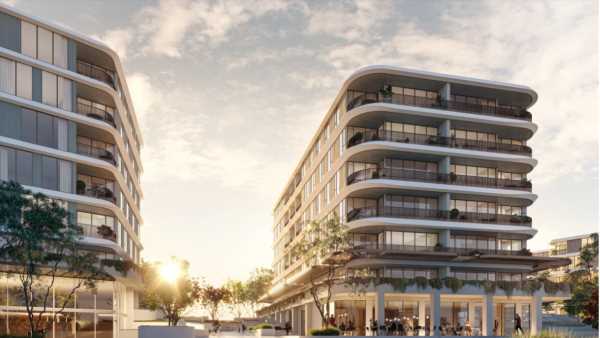Fletcher Living’s application to fast-track plans for 370 homes on 6.2ha of Ellerslie racecourse land it plans to buy was opposed by the area’s local board.
Troy Churton, an Ōrākei Local Board member, said that entity wanted the scheme to go through a more transparent resource consenting process instead of getting special treatment via the Covid-recovery process.
The board provided feedback against the scheme going through the Covid-19 Recovery (Fast-track Consenting) law, he said.
“The intent of that legislation is in relation to Covid lockdown conditions and was designed to reboot the economy. There doesn’t seem to be any lasting prejudice to the construction industry or our economy from the pandemic,” Churton said.
“That’s exactly why we’ve made the point that this style of development is no different to any other style of development.”
David Parker, Environment Minister, says that plans for The Hill development meet the criteria and should therefore be referred for consideration by an expert consenting panel.
A decision is yet to be reached.
Churton said if the scheme was approved under that law, the panel would choose who it wants to hear from. Whether people in the area were included was unknown.
When Ryman Healthcare used the same legal process to win consent for a new village in Kohimarama, the panel received comments from the local board and a group of local residents who were affected, Churton noted.
The loss of green space in the wider environment was a concern.
“But the scale of what is proposed has some obvious adverse effects on the surrounding area, such as traffic congestion and visual effects,” he said.
“The Hill has an iconic status in this area and for horse racing people, so it’s sad to see it turned into apartments. But the board is more concerned about the density, height, bulk and scale and the effects on the local infrastructure – roading, stormwater, earthworks,” Churton said.
“That’s why we said this plan should be processed through the usual resource management system and publicly notified instead of going through the fast-track system.”
Scott Milne, board chairman, said: “We’ve known for some time the land is available and as a board, we’ve been looking at what the implications are from a growth pressure point of view.
“Our main concerns would be around traffic and also the loss of open space. Ellerslie is also a heritage business district and it will come under enormous pressure and the transport links there is last century.”
Pressure on “last century” public transport and green space were key worries, Milne stressed.
People living in the new project could use buses or trains.
“If it’s within a 10-minute walk of the Ellerslie train station, even more intensification will be possible,” Milne said.
The Government wanted more affordable housing, Milne acknowledged, but doubted any of the new units would fulfil that criteria.
“By most New Zealanders’ standards, these will be very expensive apartments,” Milne predicted.
Apartments in the area went for around $1.5m-$3m each or more, he said.
Troy Elliott, board deputy chair and standing for Auckland Council in the October elections for the Maungakiekie-Tāmaki ward, said people in the area must be consulted.
“None of us are anti-development. But this should be done in consultation with all parties including people from the Ellerslie village. This is within walkable distance of the train station but we need to ensure Fletcher has full consultation with all the community,” Elliott said.
The Ellerslie Residents Association was founded some years ago based on its concerns about the racecourse land being developed, Elliott said.
“No car parks will be required for the Fletcher plan as per the new Housing Supply Bill. My concern is what happens to the surrounding streets if there are not enough car parks?” Elliott asked.
“This fast-track legislation is being used wrongly. This is tenuous at best, to be applied under that Covid-19 process because the community don’t have a say,” Elliott said.
The legislation shows that under the fast-track process, The Hill – Ellerslie’s applicants are Auckland Thoroughbred Racing Inc and Fletcher Residential.
Subdividing land, building housing, providing infrastructure and open space are planned with a mix of detached, duplex, apartment and terraced homes of one to three levels. Up to five apartments rising seven levels are planned.
Auckland Transport, the racing minister, seniors minister, Watercare Services and Ngāti Koheriki Claims Committee are parties listed by the expert panel who must be invited to comment.
Reasons for the plans going via the fast-tracking process were listed as providing jobs, increasing housing supply, having positive effects on social wellbeing by generating employment and providing a diverse range of housing types.
The project would progress faster than would otherwise be the case under the Resource Management Act’s consenting systems, the notice said.
Fletcher’s offer for the land is subject to Overseas Investment Office approval due to its share register having a high number of foreign entities on it. the company is NZX and ASX listed.
Steve Evans, Fletcher Living’s chief executive, said car parks would be provided “to meet the needs of our customers”.
“The Minister for the Environment has confirmed The Hill development meets the criteria for fast-tracking which was established to speed up consenting of projects which are considered to support New Zealand’s recovery from the economic and social impacts of Covid-19.
“We are committed to talking with residents, local boards and other interested parties throughout the process. Over the course of upcoming weeks Auckland Thoroughbred Racing and Fletcher Living will be speaking with residents, local boards and others,” Evans said.
On infrastructure, Evans said: “We have already had conversations with utility providers and are confident the development can be served without any consequence to our neighbours.”
Source: Read Full Article

/cloudfront-ap-southeast-2.images.arcpublishing.com/nzme/BDTK4QIEB2XANKTDHMCLTJAXKE.jpg)
/cloudfront-ap-southeast-2.images.arcpublishing.com/nzme/V6SBP3W7N7JTXQ6TNXBOYR532M.png)
/cloudfront-ap-southeast-2.images.arcpublishing.com/nzme/BTL6Q4OVK366TGRVIA2YFEUX3Q.jpg)